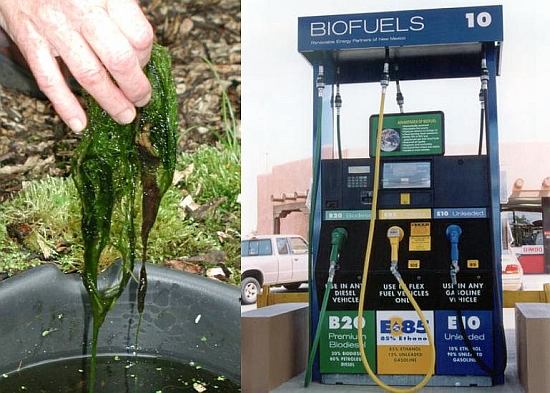
There are lots of ways to combat the problem of global warming, atleast theoretically speaking. Something as micro as algae is one such contributor to the solution to the global problem. Algae have the potential to use up carbon dioxide for photosynthesis like any other green plant but unlike any other green plant algae produce tiny fat globules that can be collected and turned to bio-diesel that can fuel automobiles and aircrafts. Unlike corn, the popular source of bio-diesel (ethanol) algae does not require large planting areas nor does it require large quantities of water like corn and all species of algae produce these oil globules. Algae growth is ubiquitous – they thrive in all types of water bodies from sea to fresh water and waste water. Bio-diesel extraction from algae is also relatively easier that from corn. Besides, algae can grow 40 times faster than other plants. Ron C. Pate, a technical expert at Sandia National Labs informs that algae have the potential to deliver 10 or 100 times more energy per acre.
However, the challenge now posed by this now-highly-in-demand algae bio-fuel is reducing the cost of production and rendering the extraction easy. Martin Tobias, CEO of Imperium Renewables in Seattle is one of the many entrepreneurs who portend the future of algae bio-fuel and already buying literally every drop of oil U.S. algae startups are producing. Besides, he has dedicated a 5 million-gallon refinery to algae oil, and by 2011 he expects startups to be making 100 million gallons a year.
Scientists are focusing at ways to ease the cumbersome extraction process by exploiting the possibility of genetic engineering. Human genome pioneer J. Craig Venter, is experimenting with different genes that would make extraction of bio-diesel from algae much easier. Perhaps, if a gene alteration in such a way that that the oil globules are secreted out of the plant cells into the medium in which they grow, extraction would prove to be much simpler.
However, these attempts seem to be restricted to the U.S. and European countries. What would make a difference in reducing the mean atmospheric temperature can only be a global effort.
via : Businessweek




